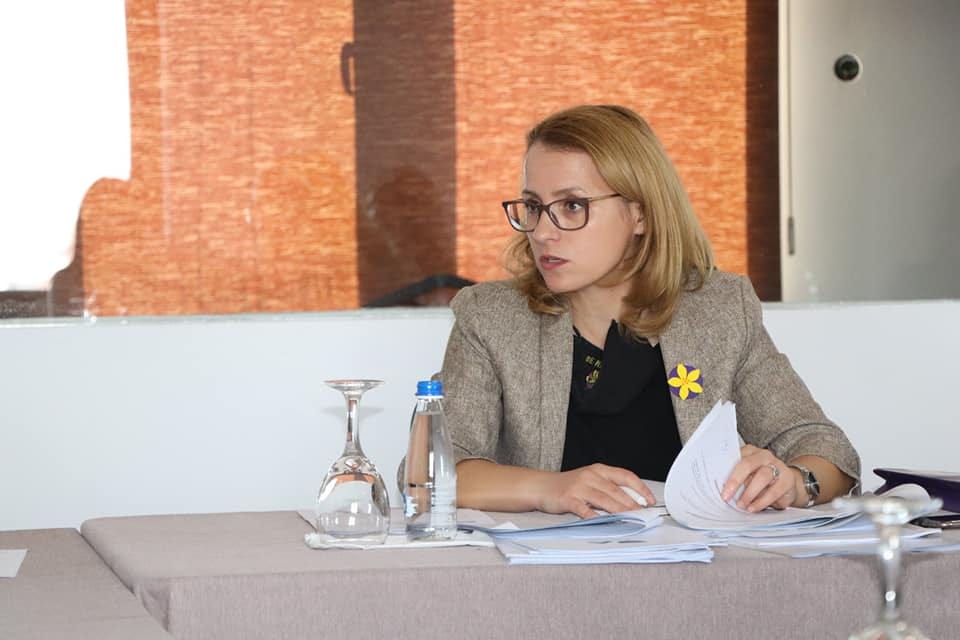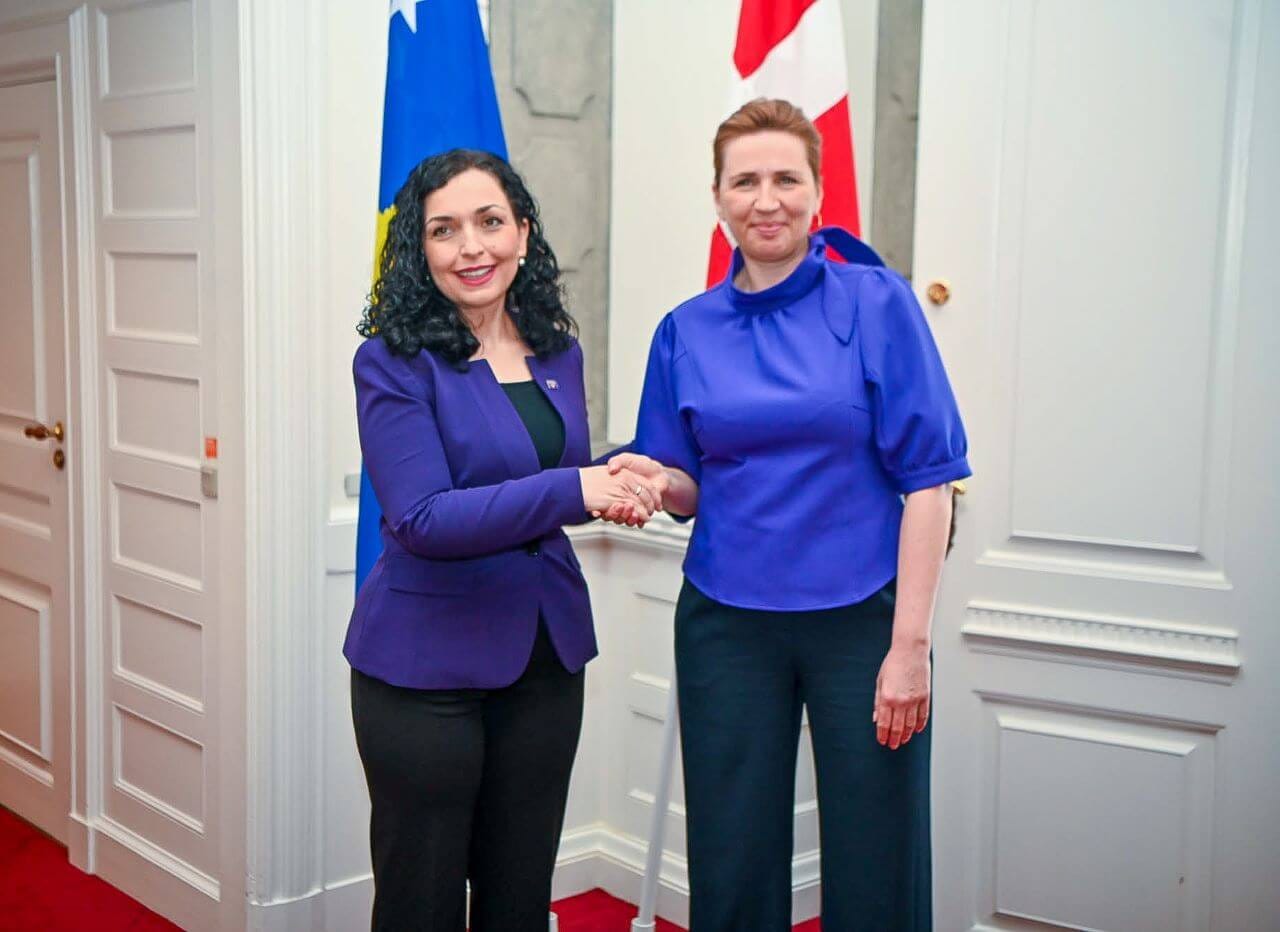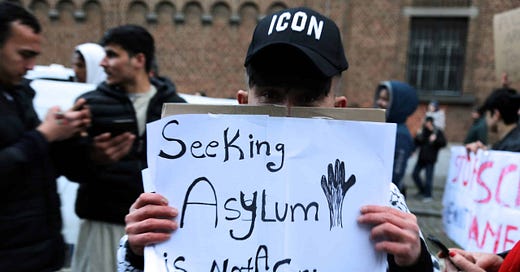S5E15. Some prisons feel more like prisons than others
Amid public indifference, Denmark is outsourcing the detention of foreign nationals to Kosovo. A model that risks shaping the EU's planned 'return hubs' in its migration policy
Dear reader,
welcome back to BarBalkans, the newsletter with blurred boundaries.
The erosion of democratic principles is a loss for everyone—always—even when it does not affect us personally. When it happens within the European Union, a project founded on these very values, it is not only shameful but often comes at the expense of people in vulnerable situations.
A little-known agreement, which could soon shape a troubling aspect of European migration policy, encapsulates this reality.
The Treaty signed in 2021 by Denmark and Kosovo allows an EU Member State to transfer to a European non-EU country up to 300 foreign detainees, including those who are “in custody” pending enforcement of an expulsion order.
This agreement closely mirrors the European Commission’s upcoming legislative proposal on returns, which should introduce ‘return hubs’—centres outside EU territory where people whose asylum applications have been rejected could be detained before being deported to their country of origin.
To shed light on the critical issues of the Denmark-Kosovo agreement and the risks of it becoming a model for European return policy, BarBalkans spoke with Fatmire Haliti, Lawyer and Program Manager at the Kosova Rehabilitation Center for Torture Victims (KRCT).
BarBalkans is a newsletter powered by The New Union Post. Your support is essential to ensure the entire editorial project continues producing original content while remaining free and accessible to everyone.
A thorny agreement
How was the Denmark-Kosovo agreement received by Kosovar public opinion?
“Discussions between the government of Kosovo and Denmark began several years ago.
However, for the public, it was a closed matter and was not discussed at all until just before the agreement was signed in December 2021. There was no public information, nor was there any debate on the issue.
Politically, the agreement was accepted with little to no opposition. This is largely because discussions between Kosovo and Denmark, which spanned several years, involved multiple governments, making the agreement widely accepted.
By contrast, public opinion remains quite sceptical about its implementation, given the potential complications it could bring.”
Read also: S2E24. Human bridges
When should the detention center open?
“On 23 May 2024, the Assembly of the Republic of Kosovo ratified the agreement, which officially came into effect 15 days later. From a legal perspective, therefore, the agreement has been in force since June 2024. However, its practical implementation has yet to begin.
At present, over 200 local prisoners are housed in Gjilan prison, and the correctional system has not yet decided where they will be transferred. As a result, preparations and renovations for accommodating the prisoners from Denmark have not yet begun.”
Who will run it?
“The prison will be overseen by a Danish governor, with the entire management staff also from Denmark. However, the correctional officers will be Kosovo nationals.”
What kind of prisoners will be housed?
“The agreement stipulates that only foreign nationals currently serving sentences in Denmark will be transferred to Kosovo. No Danish citizens will be included.”
Read also: S2E22. Ulula in the Forest of Bihać
What did Kosovo receive in return for this agreement?
“The Kosovo Rehabilitation Centre for Torture Victims has analysed this agreement to assess the mutual interests of both countries.
It is evident that Kosovo’s primary motivation for signing and ratifying the agreement was financial gain.
Under the terms of the agreement, the Republic of Kosovo will lease the Gjilan prison facility, which has a capacity of 300 people, for an initial period of five years, with the option to extend for a further five years (a total of 10 years).
In return, the Danish government will pay Kosovo an annual fee of 15 million euros for each year of the agreement’s duration. Additionally, upon implementation, Denmark will provide Kosovo with 5 million euros for the renovation of the prison.”
Who will be responsible for monitoring respect for human rights?
“Under the agreement, the Danish Ombudsman, as well as the European Committee for the Prevention of Torture (CPT), may conduct monitoring visits.
However, local monitoring mechanisms in Kosovo are not permitted to carry out inspections. KRCT has raised concerns about the exclusion of local monitoring bodies.”

Concerns over the EU’s implications
Were local human rights and prisoners’ rights associations consulted?
“Throughout the entire process, from the start of negotiations to the present, there has been no consultation with human rights organisations in Kosovo or any other national-level bodies. In fact, apart from the Ministry of Justice, no other stakeholders were consulted on the agreement.
In the absence of public discussion and debate, KRCT took the initiative to organise an international conference in March 2022. During the event, international experts discussed the challenges of implementing such agreements.
Following the conference, KRCT published a set of recommendations, which were submitted to the Ministry of Justice before the agreement was finalised.”
Read also: XXXI. One and many Lipa. The shame of Europe
What is your position on this agreement? What are the most controversial points and risks?
“Since December 2021, KRCT has consistently raised several concerns about this agreement with the relevant institutions.
KRCT believes that signing such an agreement was rushed, as it was done without public consultation and without adequately addressing or analysing potential challenges.
The main issues highlighted by KRCT include:
The lack of a solution for relocating prisoners from Gjilan prison. Kosovo’s correctional institutions, particularly its detention centres, do not currently have the capacity to accommodate the 200 prisoners from Gjilan. Any transfer plan would lead to overcrowding, directly affecting accommodation standards. Gjilan prison, along with Prishtina and the High-Security Prison, is one of the three facilities built in the past decade to improve living conditions for prisoners. Leasing Gjilan prison without a proper relocation plan would inevitably reduce housing standards;
The creation of double standards within Kosovo’s prison system. While some prisons, such as those in Peja and Prizren, will continue to have lower living conditions, Gjilan prison will be upgraded to meet Danish standards. This creates systemic inequality. Moreover, the €5 million investment to renovate and adapt Gjilan prison to Danish standards is nearly equivalent to the cost of constructing the facility just a decade ago;
The right to family visits and access to healthcare. The proposed model for family visits, which involves transferring prisoners’ relatives at different times for extended stays, will be difficult to manage while ensuring compliance with human rights standards. Additionally, providing adequate and timely healthcare services has been assessed as highly challenging;
The language barrier. Not all correctional officers will be able to communicate in the native language of the transferred prisoners, potentially hindering effective communication and the resolution of prisoners’ concerns;
The risk of human rights violations. If prisoners are transferred from Denmark to serve their sentences in Kosovo, the warnings issued by the UN Committee Against Torture must be taken into account. All necessary measures must be implemented to prevent any such violations.”
The European Union is ready to allow Member States to set up ‘return hubs’ outside their territory for migrant people to be repatriated, potentially taking the Denmark-Kosovo agreement as a model. Could Kosovo accept new agreements of this kind?
“It has been reported that several countries have approached Kosovo regarding the possibility of signing similar agreements to the one with Denmark.
However, we believe that Kosovo should refrain from entering into any further agreements, particularly under the current circumstances, as it is not adequately prepared for their implementation.”
Read also: S4E7. Can we really trust Edi Rama?

Pit stop. Sittin’ at the BarBalkans
We have reached the end of this piece of the road.
To challenge a narrative that increasingly dehumanises migrant people, today at our bar, the BarBalkans, we are reintroducing Amaro Nziria, a discovery we made a few months ago.
Its 17 carefully selected herbs and spices capture the rich aromas of the Mediterranean and Central America, but this is more than just a bottle of bitter.
Amaro Nziria is a social project—a tool to support the people and organisations searching missing persons along migration routes, from Central America to the Balkans to North Africa.
Because each of us has the power to make this continent—and this world—a place where the rights of all people are upheld. Even with a bottle of bitter.
Read also: S5E9. The liqueur of relentless souls
Let’s continue BarBalkans journey. We will meet again in two weeks, for the 16th stop of this season.
A big hug and have a good journey!
Behind every original product comes an investment of time, energy and dedication. With your support The New Union Post will be able to elaborate new ideas, articles, and interviews, including within BarBalkans newsletter.
Every second Wednesday of the month you will receive a monthly article-podcast on the Yugoslav Wars, to find out what was happening in the Balkans 30 years ago.
You can listen to the preview of The Yugoslav Wars every month on Spreaker.
Discover Pomegranates, the newsletter on Armenia and Georgia’s European path powered by The New Union Post
If you no longer want to receive all BarBalkans newsletters, you can manage your preferences through Account settings. There is no need to unsubscribe from all the newsletters, just choose the products you prefer!





